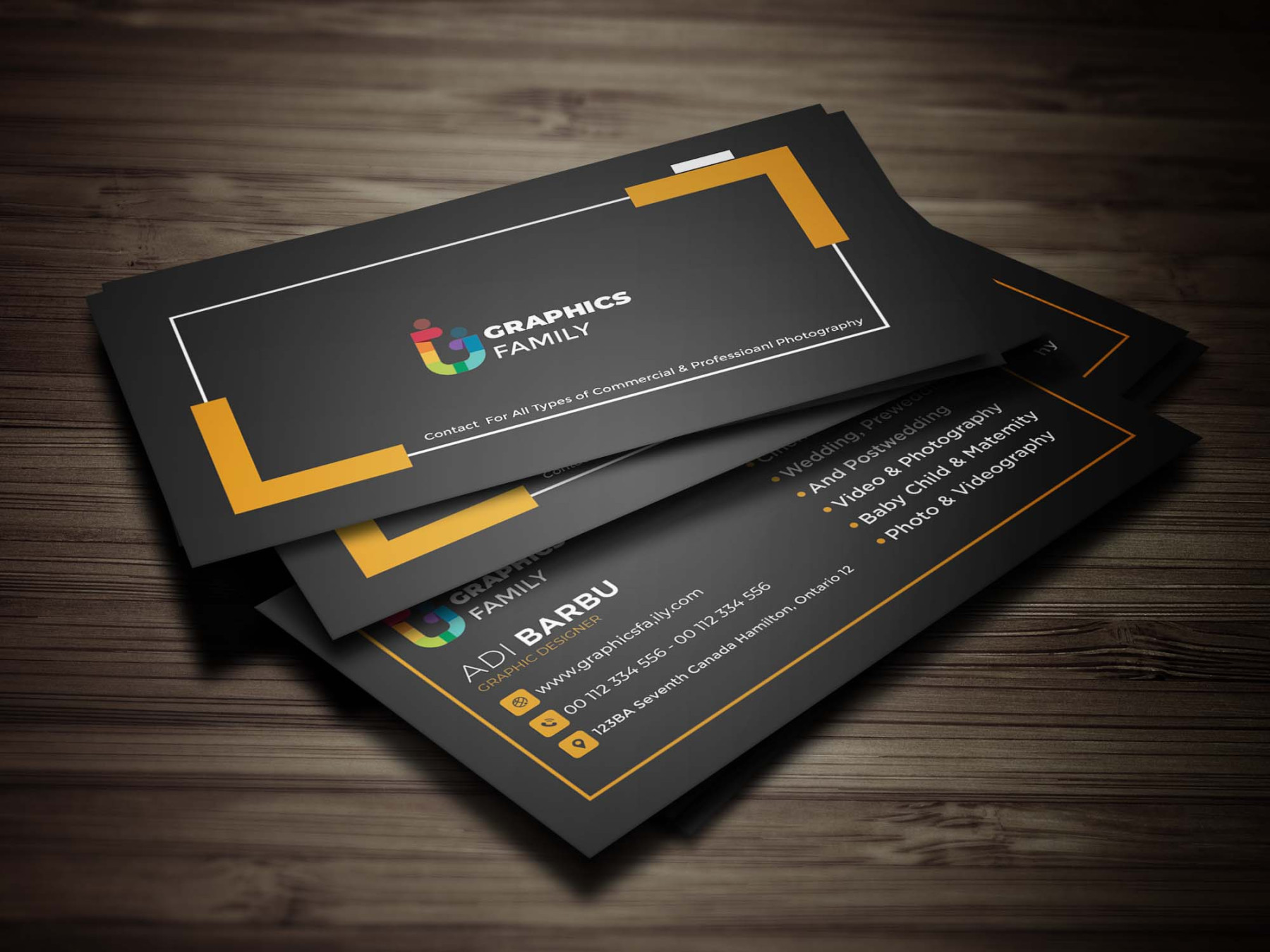Headline
A business Card is more than just a piece of paper; it’s a miniature representation of your brand. For photographers, whose work is often visually driven, the design of their business card is paramount. A well-designed card can leave a lasting impression, conveying professionalism, trust, and a sense of style.

Body
When creating a business card template, consider the following elements:
Typography
Font Choice: Opt for fonts that are clean, legible, and reflect your brand’s personality. Sans-serif fonts like Helvetica, Arial, or Roboto are popular choices due to their modern and professional appearance.
Color Scheme
Brand Colors: Choose colors that align with your brand’s identity. Consider the emotional impact of different colors and how they can evoke specific feelings.
Layout
Simplicity: Keep the layout clean and uncluttered. Avoid overcrowding the card with too much information.
Imagery
High-Quality Image: If you choose to include an image, ensure it is high-quality and relevant to your photography.
Contact Information
Essential Information: Include your name, professional title, contact information (phone number, email address, website), and social media handles.
Call to Action
Clear Message: Include a clear call to action that encourages viewers to take the next step, such as contacting you for a consultation or visiting your website.
Conclusion
A well-designed business card can be a powerful tool for photographers. By carefully considering the elements discussed above, you can create a card that reflects your brand’s personality, conveys professionalism, and leaves a lasting impression.